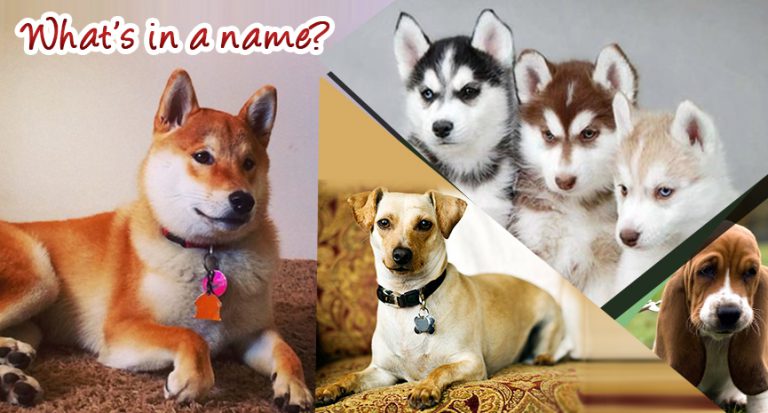“Rub the kittens with butter and put them next to the nursing mama cat.” Four orphaned kittens were to be placed next to Mona, a mama cat who had just finished nursing her own litter. According to Anna, a local rescuer who found the abandoned kittens, “The mamma cat will lick the butter off the kittens and transfer her scent to the kittens–then she’ll let them nurse. And, that’s just what happened. Mona nursed and raised the four kittens as if they were her own, even getting depressed after they were weaned and adopted.”
For these orphaned kittens, luck played a big part in creating the happy family. There was an available nursing Mama Cat. But, what happens if there’s no cat available and the only nursing mama is a dog? Would the dog accept the kittens? Could the dog properly nourish the babies? Would the kitties develop dog-like behaviors? And, should they then be dats or perhaps, cogs?
A mama dog can certainly provide the warmth, and possibly even the nurturing necessary for kittens. “But,” according to Veterinarian Tom Nero of The Cat Clinic, “the glaring issue is that the kittens wouldn’t be getting mother’s milk. A mother cat’s milk contains colostrum with the necessary feline maternal antibodies. And, nursing must be within the first 12-18 hours after birth for the antibodies to be effective. Some orphans can be given serum by injection from a healthy vaccinated adult of the same species for the antibodies.” (In emergency situations Dr. Nero, suggests the commonly accepted formula for puppies and kittens: 4 oz. whole cow’s milk, 4 oz. water, 2 egg yolks, 1 tsp vegetable oil, 2 Tums7 (for calcium), this is about 1.2Kcal/ml. The first 2 days the formula is diluted by 25% with water.)
Dr. Arnold Goldman a member of the NY-NJ-CT Regional Catastrophic Planning Team for animals during disasters adds that, “It is not uncommon for an older animal of one species, a dog say, to “mother” a kitten and its sometimes possible for a human to “add” a rejected or orphaned kitten to a litter of puppies. Given the right circumstances, the puppy’s mother may allow the kitten to nurse along with the puppies.”
“Dog breeders, Dr. Goldman continues, “sometimes have a puppy rejected by one mother and if they happen to have another recent litter, they can add that puppy to a more receptive nursing mother.”
Does that mean that dogs nursed by a cat develop cat-like traits or kittens nursed by a dog suddenly develop dog-like behavior traits?
Not according to Dr. Goldman. “There really isn’t a lot of research available on this particular subject, but,” Dr. Goldman adds that, “although there are no known advantages to cross -species nursing, it would make sense that the kittens probably would not fear dogs as a result. It also follows that litter mates would not reject the orphans, as litter “rules” are made by the nursing mother and not by the litter mates.”
However, bonding between litter mates, even cross-species litter mates is a given. A perfect example of this bond can clearly be seen in the photos of Mango and Milkshake, a little orange kitten that was raised with two pit bull puppies. According to the Ben Lehrer of Kitten Rescue, “They eat together, play together and sleep together in a constant visual display of adorableness that would melt even the coldest of hearts. Even today, Mango and Milkshake are inseparable.”
A tiny kitten on the verge of death, was suckled back to life by a Pekingese who hadn’t given birth in two years. After two days, the dog was able to produce milk for the kitten and subsequently saved the kitten’s life.
Certain cat breeds such as Maine Coon, Persians, Ragamuffins and Bengals often display “dog-like” behavior–are more playful, love attention and can even learn to play fetch–just like a puppy. So what about a “puppy-kitten.” Not an animal bred by mating a dog and a cat. That’s not quite possible yet. A Puppykat is a new breed of cat developed by a breeder in California. An actual registered rare cat breed, the Puppykat is reported to act just like a puppy, even coming when called, is calm, intelligent and playful.
They have folded ears, are polydactyl (extra toes on the front paws and a short tail. They are reported to adapt easily to new situations, actually enjoy being around people and can be easily trained to the leash and to fetch.
Certainly there are cat-people who would relish the idea of a cat-like dog and dog people who would welcome a dog-like cat. Or, with the ongoing and usually quite vocal discourse on whether a person is a dog- person or a cat person, will blending the two species end that endless battle?
Should we keep Fido in front of the fire and Felix happily curled up in your lap? Or, perhaps one species for both. I think not.





